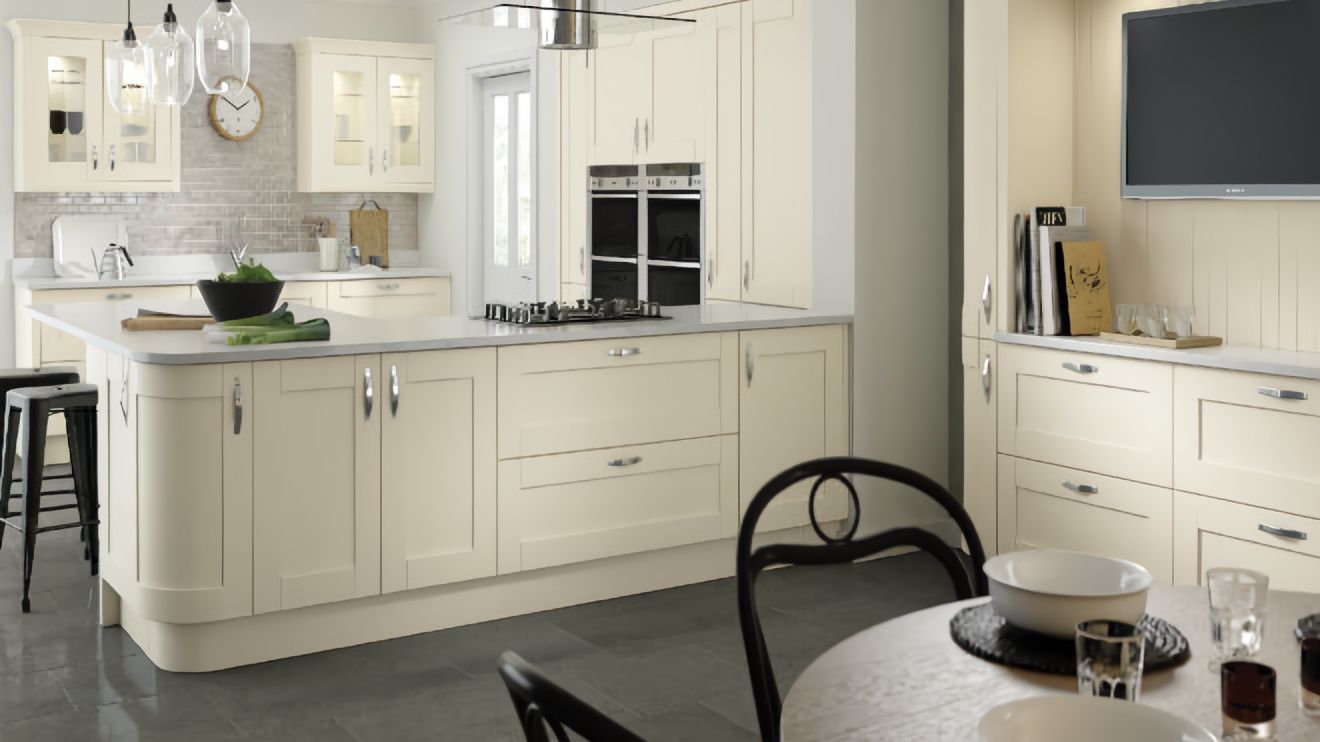So you've splashed out on new cabinet doors and your kitchen looks fantastic. But how to keep that crisp, clean, freshly-fitted feel, when you'll be busy cooking, eating and spending time in it?
Like so many household chores, when it comes to cleaning kitchen doors, little and often is the way to go. Rather than doing a big deep-clean once every couple of months or so, giving your doors a good wipe-over every few days will stop grease sticking and dust collecting.
So what are the best ways to keep those fresh new surfaces as clean and crisp as the day you fitted them? Well, it depends entirely on what your doors are made of. Most kitchen doors are easily cleaned with warm soapy water and a soft cloth, but there are some materials where it's worth taking a bit of extra time and care.
High Gloss doors & Ultragloss doors*
These sleek, modern doors come in a range of shades. From crisp white to cool grey to pillar-box red, and more, they have smooth, high-shine surfaces. They're the ultimate in modern, minimalist design. However, fingermarks, spots and spills can really show up. The good news is, these doors are perhaps the easiest to clean. So they're far more practical than they sound.
Wash the doors with a gentle detergent and water, then dry thoroughly with a soft cloth, towel or kitchen paper. If you find that soapy water leaves streaks on the doors, perhaps try using a glass cleaning spray - or even just some vinegar diluted in water. Again, drying the doors with a soft, non-fluffy cloth should ensure your doors are left absolutely mirror-smooth and shining.
*Not sure what the difference is? Find out here.
Real wood kitchen doors
Generally, real wood cabinet doors will be finished with a layer of varnish, lacquer or similar. These products are designed to protect your natural wood doors from moisture, which can cause cracks and discolouration. This means that it's actually fairly easy to keep wood kitchen doors looking good.
Clean real wood doors with good old-fashioned soapy water - dish-washing liquid is ideal. Take your time. Dry them properly with a non-abrasive cloth or towel. Even though the wood will have been treated to protect it from moisture, it's a good idea to take care. And if you notice any spots of grease or food on your wooden doors, clean them off as soon as possible - trying to remove marks after they've dried and hardened will only damage the surface of the door.
If your doors haven't been protected with varnish or lacquer, you may need to keep a slightly closer eye on them, and use cleaning products specifically made for wood. Small scratches and marks can easily be sanded away though, so there's no need to stress too much.
Painted kitchen doors
Once again, your usual detergent is a great cleaner for this type of surface, but take care not to use anything too abrasive. Painted surfaces can usually be cleaned with a general kitchen cleaner, but obviously check product labels to see what surfaces they're suitable for. Kitchen doors finished with a gloss paint will require regular wiping down, but staining should be less of an issue. And remember, painted doors can always be resprayed if necessary.
Doors with glass panels
Kitchen doors with glass panels can be cleaned with simple glass cleaner, or vinegar diluted in plenty of warm water. Clean etched glass as gently as you can, as you don't want to damage the patterned surface.
Cleaning the rest of your kitchen
A shining sink
A tip we've picked up from cleaning guru Mrs Hinch: use fabric softener to clean your sink and leave it smelling delightful! Pour two capfuls into the sink along with a kettle of just-boiled water, and leave it to sit there for as long as you can, topping up every so often with more hot water. After 3-4 hours, drain it, and use a scourer to get rid of any remaining build-up.
Clear drains
Keep your sink drain clear and odour-free by pouring a cupful of soda crystals down, followed by a cup of white vinegar. Leave for about 30 minutes. Then use water from a freshly-boiled kettle to wash the mixture away.
A spotless hob
Use a cream cleaner like Cif and a Minky cloth to give your hob a wipe down every day or two.




